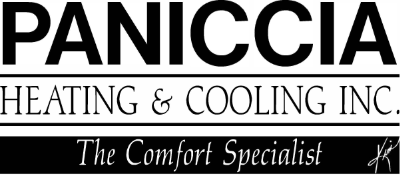
To combat increasing energy expenses and embrace sustainability, many homeowners are trying new methods to maintain comfort levels while using less energy. Included in the Inflation Reduction Act, federal tax credits are available for upgrading to more efficient HVAC systems, such as air conditioners. These credits offer a big chunk of the installation costs, as long as the homeowners work with qualifying equipment and submit the right paperwork.
If you’re concerned the application process might be tedious, we can share something that will help! Paniccia Heating & Cooling hopes this guide will give you everything you need to earn these HVAC tax credits in 2024. Here’s what you’ll need to do.
Understanding the HVAC Tax Credits
These valuable tax credits for upgrading your home to be more energy-efficient are just one small part of the recent Inflation Reduction Act. With the higher cost of energy making an impact, helping more homeowners upgrade their equipment is always beneficial. The primary goal of these credits is to help pay for high efficiency HVAC equipment and other projects. Of particular importance are the Energy Efficiency Home Improvement Credit and the Residential Clean Energy Credit.
But keep in mind, in order to claim your credits, you’ll need a completed IRS Form 5695. Additionally, this form has to be submitted during the same tax year your upgrades were installed, not bought.
Energy Efficiency Home Improvement Credit
Through 2032, the Energy Efficiency Home Improvement credit empowers homeowners by offsetting up to $3,200 annually for making your home more energy-efficient. This equals 30% of the total project’s cost. Keep in mind that in order to be eligible for the maximum amount, it means making severel investments. For example, you’ll save up to $2,000 for a new, high-efficiency heat pump. This can be combined with the remaining $1,200 in credits for other eligible upgrades made within the tax year.
While new heat pump installation projects are a popular option for the tax credit, other HVAC upgrades like efficient furnaces and air conditioners also qualify. You should confirm the make and model’s energy efficiency rating is sufficient to qualify.
Exploring the Residential Clean Energy Credit
The Residential Clean Energy Credit amounts to roughly 30% savings on a variety of residential clean energy equipment upgrades. Eligibility is restricted to homeowners looking for new clean energy solutions for their home. While the Home Improvement Credit highlights utilities and HVAC systems, this credit is more about renewable energy sources like solar and wind energy.
Some specific items in this tax credit include the requirement that installation must occur between 2022 and 2032. But at the same time, homeowners can use any excess credit to reduce taxes in future years. This is a great way to soften the entry into investing in clean energy.
What Else Is Eligible for These Tax Credits?
Because HVAC systems are one of the major reasons for high energy bills, these tax credits incentivize the most energy-efficient options. But home energy efficiency can be improved in many other ways. Apart from the previously listed HVAC upgrades, {you could also choose|other eligible items include|you also have access to:
- Heat pump water heaters
- Electrical panel upgrades
- New electrical wiring
- Enhancements to insulation, air sealing, and ventilation
- High-efficiency electric stoves, cooktops, ranges or ovens
- Heat pump clothes dryers
- Water boilers
Like the HVAC systems, you’ll need to check that your preferred make and model features the eligible energy efficiency ratings.
Three Tips for Making the Most of 2024 HVAC Tax Credits
While any one of those upgrades can enhance your home's energy performance, a little planning will ensure the best chance at more long-term benefits. Maximize your HVAC tax credits with the following three tips:
- Conduct a home energy audit to identify impactful upgrades. Trust experienced HVAC companies to pinpoint essential products and services.
- Install new high efficiency windows and doors.
- Explore potential rebates from utility companies for clean energy upgrades. Renewable sources like solar, wind, and geothermal contribute to community power grid sustainability.
- Don’t forget financing options from local service companies, which can help reduce costs even more.
Paniccia Heating & Cooling Can Help You Secure HVAC Credits for 2024
Partner with local HVAC professionals like Paniccia Heating & Cooling for help with home energy audits and new installation projects. Our experienced installers will deliver everything you need for home energy efficiency upgrades.
